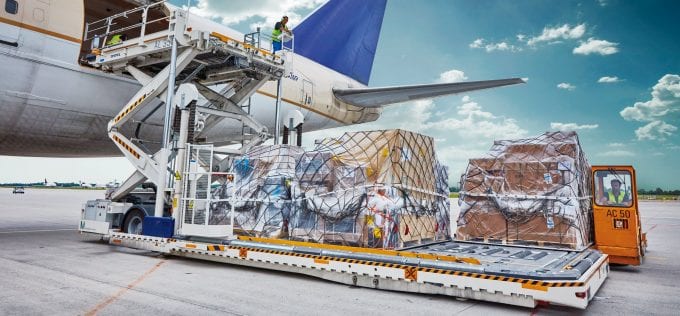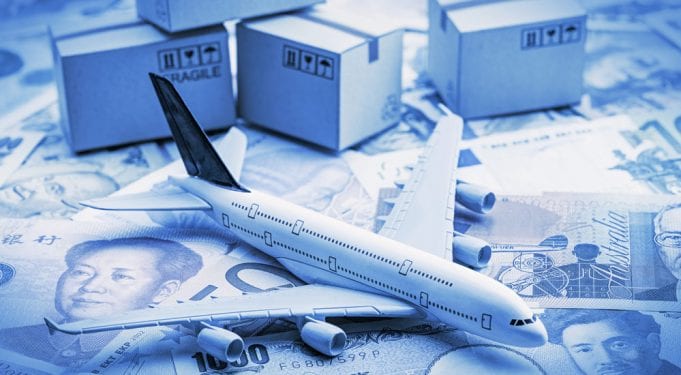The Air Cargo Industry is greatly influenced by technology improvements. Today, you can book a flight with your smartphone, or go to some store that is specialized for bookings. Also, some automated gates and stores can automatically check your passport.
It is very important for an Air Cargo company to track all of the technology advancements and always try to implement the newest solutions in order to make their services to be easier for customers. One of the best improvements is the use of websites, or applications for smartphones, that customers can use to send or track their products.
Some economists are predicting that a global recession is increasingly likely to occur in 2025, and this uncertainty is beginning to weigh heavily on the world’s biggest economies. Even relatively prosperous industries have struggled to maintain growth over the last year, with statistics from analyst World ACD confirming that air cargo volumes declined for the twelfth consecutive month in October.
During this period, the total chargeable weight shipped declined by 5%, while general cargo also slipped by 8.2% on the previous years’ figures. This may be little more than a temporary blip for the sector, however, which continues to be revolutionized by exciting and cutting-edge technologies. But what are these technologies, and how will they benefit the air cargo sector?
Differentiation and Added Value

One of the main benefits of technological advancement is that it enables air cargo firms to differentiate their service as a way of adding value. This is most evident in the logistic services, offered by air cargo firms who have embraced innovation, and technological advancement to provide real-time tracking, boost fuel-efficiency, optimize routes to minimize loads, and expedite delivery speeds.
Air Cargo firms are wise to the need to incorporate technological advancements, according to Chapman Freeborn’s Russi Batilwala, the firm have an ongoing commitment to charter market innovation. This was a key reason for their newly formed partnership with Avia Solutions Group.
This trend is set to gather further pace in the near-term too, with decentralized technologies, such as blockchain offering far greater transparency to stakeholders and revolutionizing the supply chain as a whole. Blockchain is certainly likely to usher in the operating systems of tomorrow, as part of the new and improved supply chain networks, that combine B2B connectivity with software apps.
A Reduced Margin of Error

In more general terms, air cargo firms can also leverage technologies such as automation and artificial intelligence (AI) to minimize human error across various departments. Automation certainly helped to reduce the margin of error in air freight operations, with machine-learning processes and systems statistically less likely to make mistakes than humans.
This is not to say that such systems cannot make errors or cause disruption when they’re first implemented, of course, but these are typically more predictable and easy to eradicate quickly. This principle applies to everything from supply chains to sales processes, and it’s something that air cargo firms will want to embrace in the current economic climate.
With the use of smartphones and websites, every customer can see if their product is on the way because every time they are sending or receiving something, you will get a tracking code. With this code, you can always see where is the current location of your product. There are very small chances for any mistake. If you can`t find your product, you will just need to contact the customer support of the Air Cargo company.
Access Multichannel Sales to Minimize Costs and Optimize Profitability

Let’s face facts; sales are central to every successful business, and air cargo operators are no exception to this rule. However, the value of sales is directly determined by a fixed and diverse cost base, which includes customer acquisition costs, production levies, and the amount required to deliver products efficiently.
Also, with technology improvements, such as the massive use of GPS, that today we have on our phones, every customer can track its product, which is giving them the feel of secure, and transparency for the company.
The efficiency is well-improved with the use of specialized stores for customers where they can send a delivery in a minute, without any papers and complications that are time-consuming.
The cost of sales must be lower than the total revenue generated. That is the reason why companies are increasingly tended to transition online and reduce their traditional overheads.
Technology has helped air cargo companies to achieve this goal, while also creating a scenario where they can drive multichannel sales, as part of an optimized and integrated strategy. In the modern age, it’s undoubtedly more profitable to gain leads through various inbound marketing techniques and convert this efficiency than it is to sell through a single, traditional channel.
It is Cheaper and Simplified

With the development of technology services, faster internet and massive use of smartphones, communication and trading are more agile, and many successful logistics companies are implementing new technologies in their systems.
With the development and massive use of the internet, there are more available customers on the market, with increased needs. Because of that, the Air Cargo industry must implement all of the innovations to increase its role in the market.
One of the main benefits of developing the Air Cargo industry with technology upgrades is better efficiency and a smaller price of transport. Also, there are some changes for workers too, because there is an increased need for an IT sector, just like in most of the companies today. With an improved IT sector, you can send or order anything that an Air Cargo company would carry, within a minute.
The IT sector is now responsible for maintenance, and communication between the Air Cargo company and all of its clients. Also, the needs of customers are on the rise, because they expect faster and more quality services, which means that every Air Cargo company must have a good customer support. With current trends, it is estimated that most of the workers in the future will work in the IT sector of the company.








